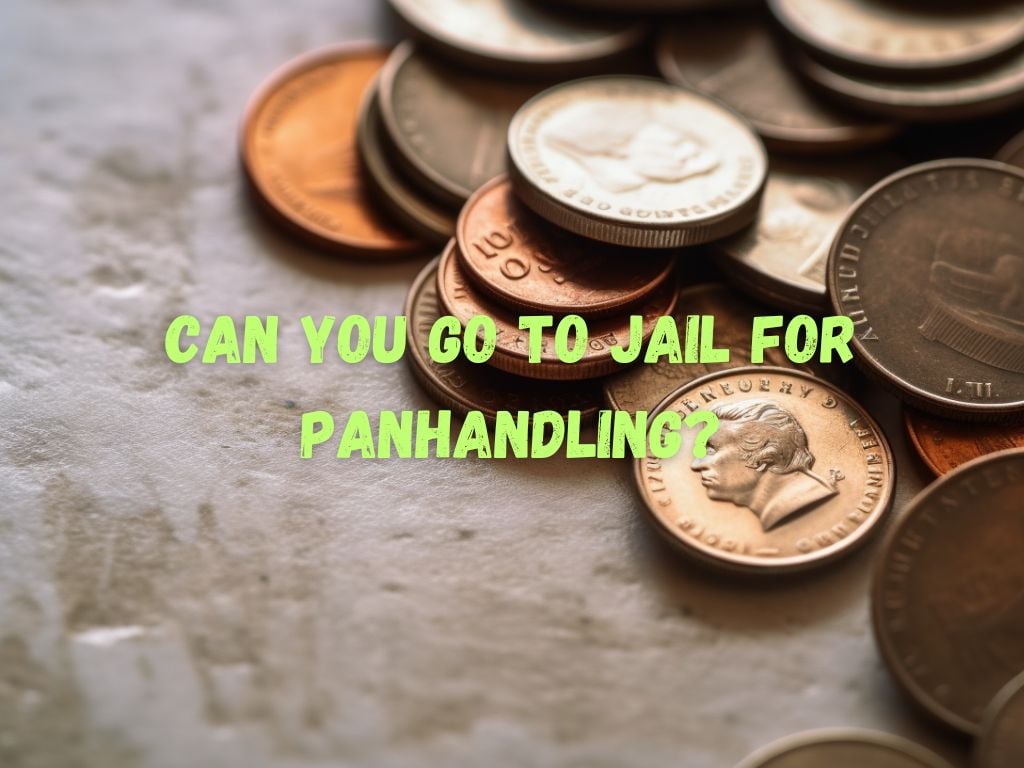Panhandling or begging is a common sight in many major cities across the United States.
It is a way for homeless individuals or those facing poverty to earn a living.
However, panhandling does not come without risks, including potential penalties and even jail time.
So, can you go to jail for panhandling? This article aims to provide a detailed guide to the legalities of panhandling, the risks associated with it, and what is legal and what is not.
Is Panhandling Illegal?
Panhandling laws vary across different states in the United States. While panhandling itself is not illegal, certain activities associated with panhandling may be prohibited.
It is essential to understand the specific laws in your state or city to avoid potential legal consequences. Here are some subtopics to consider:
Laws Regarding Aggressive Panhandling:
Many states have laws in place to address aggressive panhandling, which involves behaviors that are intimidating or harassing to others.
Such behaviors may include touching, following, using threatening language or gestures, or creating a sense of fear in the person being solicited.
It is crucial to know the specific laws in your area regarding aggressive panhandling.

Prohibited Locations for Panhandling:
Certain locations may have restrictions on panhandling owing to safety concerns or interference with the normal flow of public activities.
For instance, panhandling near public transportation stations, highway exits, or within a specific distance from ATMs may be prohibited.
Additionally, panhandling on private property, such as shopping malls or business premises, may be considered trespassing without the owner’s consent.
Licenses and Permits:
Some states require individuals engaging in panhandling to acquire licenses or permits.
These permits may outline specific rules and regulations to ensure that panhandling activities are conducted lawfully. Be sure to check if your state requires licenses for panhandling and how to obtain them.
What is Legal and What is Not?
While some types of panhandling can result in arrest and even jail time, there are certain activities that are legal.
For instance, holding a sign that asks for money is usually legal so long as it is not done in an aggressive manner that could be perceived as harassment. Accepting money from passersby is also legal.
On the other hand, panhandling activities that obstruct traffic or are performed in unsafe locations are often illegal.
Panhandling near transit centers and bus stops could also be seen as an obstruction of transportation, which is illegal in many states.
Obstructing pedestrian or vehicular traffic could also lead to arrest and charges.
Additionally, panhandling in a way that interferes with other businesses could be identified as a violation of city regulations and can result in penalties.
Can You Go to Jail for Panhandling?
The short answer is yes. While most panhandlers do not go to jail, there have been instances where individuals who engaged in aggressive or illegal panhandling have been arrested and convicted.
The severity of penalties varies depending on the state and the nature of the offense. Here are important points to consider:
Potential Penalties:
If convicted of panhandling-related offenses, individuals may face a range of penalties.
These penalties can include fines, community service, probation, and, in some cases, even jail time. It is essential to be aware of the potential consequences of illegal or aggressive panhandling in your area.
Repeat Offenses and Enhanced Penalties:
In some states, repeat offenses can lead to heightened penalties. For instance, if an individual has previously been convicted for panhandling, subsequent offenses may result in more severe punishment.
This reinforces the importance of understanding the laws and regulations to avoid engaging in illegal activities.
High-Profile Cases:
There have been cases where individuals engaging in aggressive or illegal panhandling faced significant legal repercussions.
These high-profile cases often bring attention to the consequences of panhandling outside the boundaries of the law.
While these cases might not be representative of the majority, they highlight the potential risks associated with panhandling in certain circumstances.

Understanding the Risks of Panhandling
Panhandling can present various risks and potential dangers for those who engage in the activity.
It is crucial to be aware of these risks to make informed decisions. Here are some points to consider:
Safety Concerns and Violence:
Panhandlers are at an increased risk of facing violence or harassment, especially in situations where they encounter aggressive individuals or encounter hostile environments.
The general public’s perception of panhandling may vary, leading to confrontations and potentially dangerous situations for panhandlers.
Criminal Activities and Substance Abuse:
Panhandling, in some cases, can be connected to other criminal activities such as theft, drug addiction, or public intoxication.
Unfortunately, individuals may misuse the money received through panhandling to support unhealthy habits, including the purchase of illicit substances.
Resources for Assistance:
Recognizing the risks faced by homeless individuals and those facing poverty, various organizations and programs aim to provide assistance and support.
Resources such as homeless shelters, food banks, and social service agencies exist to help individuals access basic needs, including temporary shelter, meals, employment assistance, and healthcare services.
It is important to promote awareness of these resources and encourage individuals to seek help beyond panhandling.
Frequently Asked Questions:
Q: Are there any federal laws against panhandling?
A: Panhandling laws vary at the state and local levels, but there are no specific federal laws covering panhandling.
Q: Can panhandling be considered free speech?
A: While engaging in panhandling is a form of expression, the extent to which it is protected by the First Amendment varies across different jurisdictions.
Some restrictions may apply, particularly if the panhandling activities are deemed aggressive or pose safety concerns.
Q: Are there alternatives to panhandling?
A: Yes, there are alternatives to panhandling that can provide individuals facing poverty with financial stability, such as seeking employment, accessing social services, and connecting with local charities or organizations that offer assistance to those in need.

Conclusion
While panhandling is a way for homeless individuals to earn a living, it comes with risks. It is important to research local laws before engaging in panhandling activities to avoid legal penalties and arrest.
Some factors that can lead to penalties include aggressive panhandling, panhandling on prohibited locations, and obstructing vehicular or pedestrian traffic.
Panhandling can be dangerous, not only from a legal standpoint but also due to the risk of harassment and violence from those who disapprove of the activity.


 Tags:
Tags:










